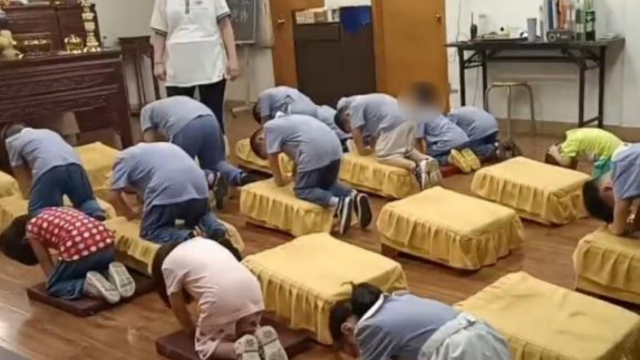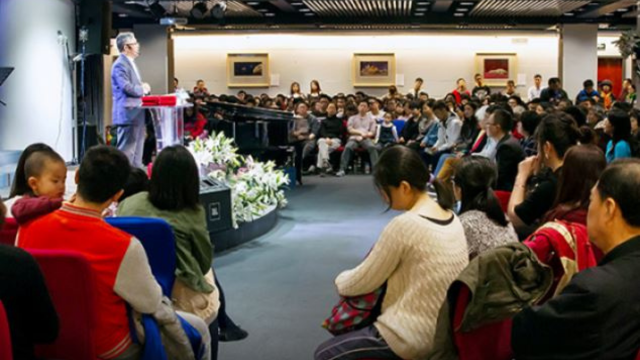If direct harassment doesn’t help to “transform” priests, make them succumb to regime’s rule, then clergy’s relatives are bullied and congregations terrorized.
by Tang Zhe
Although the Vatican’s pastoral guidelines of June 28 call on the Chinese authorities to respect those who refuse to join the Chinese Patriotic Catholic Association (CPCA), the CCP continues to pressure the priests of what was known as the Underground Catholic Church to succumb to its totalitarian rule. Facing resistance from many, the government is extending its suppression measures.
Guilt by association
Bitter Winter reported on January 1 about an elderly priest from the Diocese of Mindong in the southeastern province of Fujian who suffers from cancer and has been harassed by the government for refusing to join the CPCA. Because of his high position within the Catholic Church, the government continues pressuring the priest, seeking to “transform” him, to make an example for other clergy members in the diocese. They even tried to lure the elderly priest with money, but he refused to compromise.
According to recently received information, the priest was driven out of a nursing home where he lived for some time. Ever since he moved into the home of a relative, the government has been intimidating the man in an attempt to put pressure on the priest using the guilt by association tactics. In June 2019, authorities closed down the factory that the relative ran, and on December 24, they cut off the water and electricity supply to his house, the same where the priest now resides. Officials proclaimed that “taking care of the priest constitutes a crime,” threatening to demolish the house if the relative continued sheltering the priest.
Irritated, government officials even threatened to kill the priest, saying that his death would mean that “one more bother has been eliminated.”
The priest said that he would rather die in prison than join the CPCA. He had been subjected to frequent arrests and was imprisoned on “counterrevolution” charges in the 1970s.
Relatives of other Catholic conscientious objectors in the Diocese of Mindong have also been punished through guilt by association. On December 25, government personnel cut off the water supply to the house of a younger brother of a priest who refuses to join the CPCA. A close relative of another priest was threatened to be expelled from his job, and officials also warned the entire family that they “would not enjoy a peaceful life” unless the priest concedes. Wanting to protect his relatives, the priest compromised and joined the official church.
The same fate befell members of the clergy in the Diocese of Yujiang that belongs to the Roman Catholic Diocese of Nanchang, headquartered in the capital of the southeastern province of Jiangxi. The suppression of unregistered Catholic churches in the province has intensified since September 2019, after the visit of a religious work inspection team, headed by Wang Yang, Chairman of the Chinese People’s Political Consultative Conference.
Suppressed in the name of “unification”
A Catholic from the prefecture-level city of Fuzhou in Jiangxi told Bitter Winter that officials from the city’s National Security Division tried to coerce a local priest to join the CPCA by promising to build a new church. If he refused, he would be sent back to his home village to work as a farmer.
Officials from the city’s government showed the photo of another priest to a Catholic congregation, asking to identify him. They claimed that because the priest refuses to join the CPCA, he is considered “a dangerous criminal,” and those who shelter him would have their houses demolished.
A priest from the Yujiang Diocese commented to Bitter Winter that the CCP aims to eventually eliminate all unregistered Catholic churches by restricting their growth and ideologically transforming their priests, disguising their actions as “church unification” efforts.
“The ‘unification’ of the official and unregistered churches is merely one of the pretexts the government uses,” the priest added. “After forcing a church to join the CPCA, they can monitor its activities through surveillance cameras installed in the church. It is also mandatory for the registered church to hang a national flag and sing the national anthem. It actually makes you suffer more.” The priest doesn’t feel intimidated, and he is not willing to compromise; he is ready to die as a martyr.
Meeting venues shut down, religious activities prohibited
To intimidate clergy and believers, the CCP also regularly closes down meeting venues that are not part of the official church, leaving congregations with nowhere to meet. In this way, they will have no choice but to join the CPCA, officials believe.
In late November, the government shut down multiple Catholic churches, administered by the Diocese of Mindong, which were located in the prefecture-level city of Ningde in Fujian, for “inadequate fire control measures.” When the congregation of Laitou Church in Fu’an, a county-level city in Ningde, promised to fix all the problems, officials replied that it was useless if their priest continues refusing to join the CPCA.
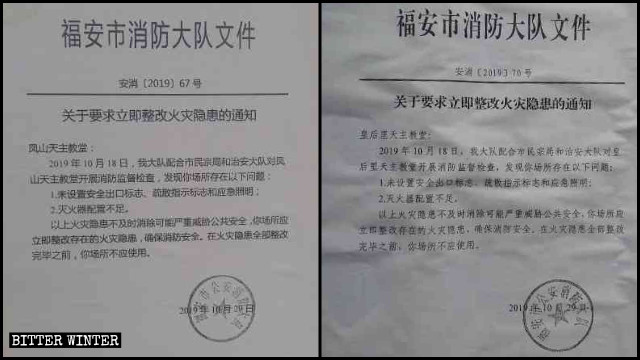
In November, a Yujiang Diocese church, located in Wenquan town of Fuzhou’s Linchuan district, was repurposed by the local government for an elderly activity center.
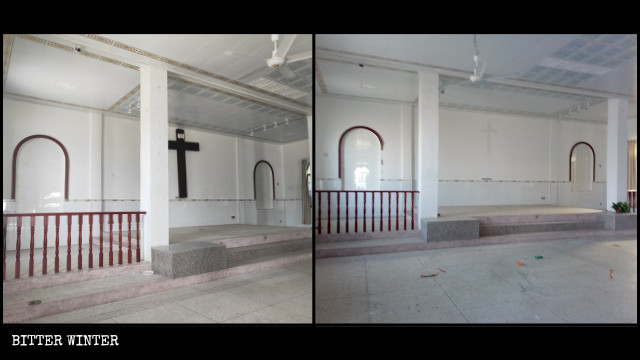
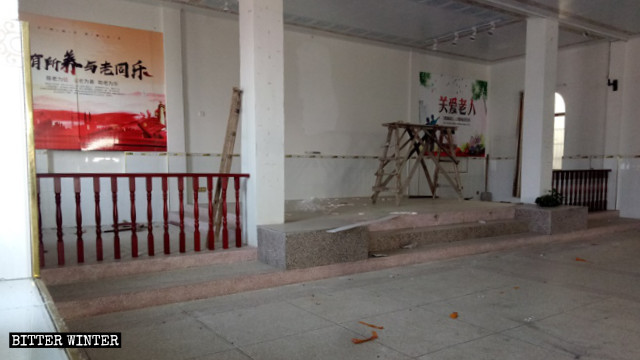
On July 7, a priest was holding Mass in a Catholic church in Boye county, administered by Baoding city in the northern province of Hebei, when over 30 police officers stormed into the venue. They emptied the church and took away the priest, sending him back to his hometown later that day.
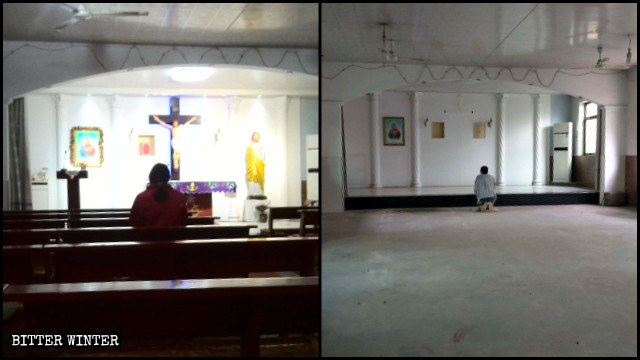
As part of suppression measures, the government has also banned all religious activities outside places of worship. In November, over 100 believers gathered for Mass at the Sacred Mountain – a cemetery in Qiligang township, administered by Jiangxi’s Fuzhou city – where many Catholic priests and believers are buried. Over ten government officials soon showed up and dispersed them, threatening to raze the cemetery to the ground should they come here again.
Source: Bitter Winter









